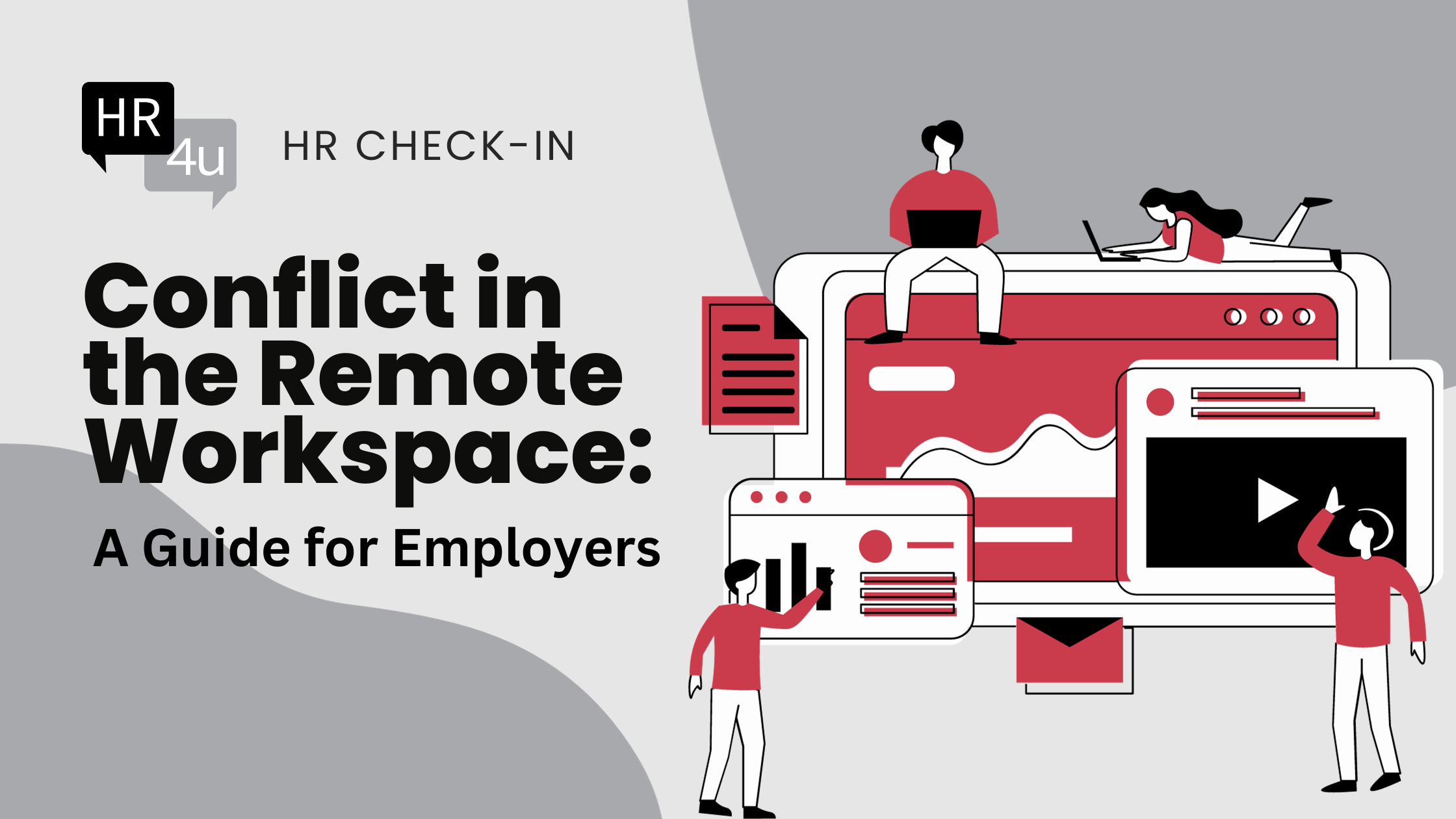So, you’ve finally established a fully remote workspace and now, all the problems we once knew how to resolve are flipped on their heads in the matrix of an online world… Today, employers are faced with many new challenges, one of the most pressing being conflict resolution in virtual teams. As the traditional workplace undergoes a transformation, HR plays a pivotal role in ensuring that conflicts are addressed effectively to maintain a positive and productive work environment. Here’s our guide on handling conflict in the realm of remote work:
1. Establish Clear Communication Channels:
Communication is the key to effective conflict resolution. Do you have channels for employees to express their concerns? Clearly define these channels whether they be through virtual meetings, email, or dedicated communication platforms. Encourage open dialogue and make sure employees know the appropriate avenues for reporting issues. Keep communication flowing and you’ll be ahead of the problem before it arises or worsens. And the best way to keep communication flowing is to…
2. Provide Regular Check-ins:
Regular check-ins are essential tools for employees to voice concerns and prevent issues from escalating. Schedule virtual meetings to maintain a sense of connection and ensure that employees feel supported and heard. Some people thrive on one-on-ones, others might want prompting questions that they can respond thoughtfully to over email.
3. Set Clear Expectations:
Ambiguity can create conflict. Define roles, responsibilities, and expectations for remote workers. When everyone is on the same page, misunderstandings are less likely to occur.
4. Invest in Employee Training:
This is a new online world that almost everyone is stepping into for the first time. That means we’ll all need a little training to navigate the terrain. Equip employees with the tools they need to navigate conflicts. Offer training on conflict resolution, effective communication, and emotional intelligence to build a team that can handle challenges with resilience.
5. Promote a Positive Remote Work Culture:
Whether your organization has moved to a hybrid work model, has always been remote, or you’re trying remote work for the first time, it is essential to foster a positive and inclusive work culture that transcends physical boundaries. Encourage teamwork, collaboration, and mutual respect through virtual team-building activities and initiatives that promote employee well-being.
6. Provide Virtual Mediation Services:
Offer virtual mediation services facilitated by HR or external mediators. This provides a neutral ground for conflict resolution, ensuring that disputes are handled objectively.
7. Document and Track Conflict Resolution:
Maintain detailed records of conflicts, discussions, and resolutions. This documentation serves as a valuable resource for HR to identify patterns, assess the effectiveness of conflict resolution strategies, and ensure consistency in addressing issues.
8. Flexibility and Individualized Solutions:
Remote work comes with unique challenges. It is important to be open to flexible solutions that consider individual needs and circumstances when resolving conflicts. A one-size-fits-all approach may not be suitable for the diverse experiences of remote employees.
9. Policy Review and Adaptation:
Regularly review and update HR policies to accommodate the changing dynamics of remote work. Ensure that conflict resolution processes are clearly outlined, easily accessible, and aligned with the principles of virtual teamwork.
10. Emphasize Confidentiality:
Create an environment where confidentiality is paramount in conflict resolution. Employees should feel secure in expressing their concerns without fear of retaliation, fostering a culture of trust within the virtual workspace.
11. Crisis Intervention and Support:
For more serious conflicts, HR may need to intervene promptly. Conduct thorough investigations, provide additional support, and take appropriate measures to address the issue. Crisis intervention ensures a swift and effective resolution.
The remote work landscape presents both opportunities and challenges. Effectively navigating conflicts requires a proactive and people-centric approach. By prioritizing communication, setting clear expectations, and fostering a positive virtual work culture, HR can play a pivotal role in maintaining a harmonious and productive remote workspace. The key lies in adaptability, empathy, and a commitment to creating a workplace where every employee feels valued and supported, regardless of their physical location.
